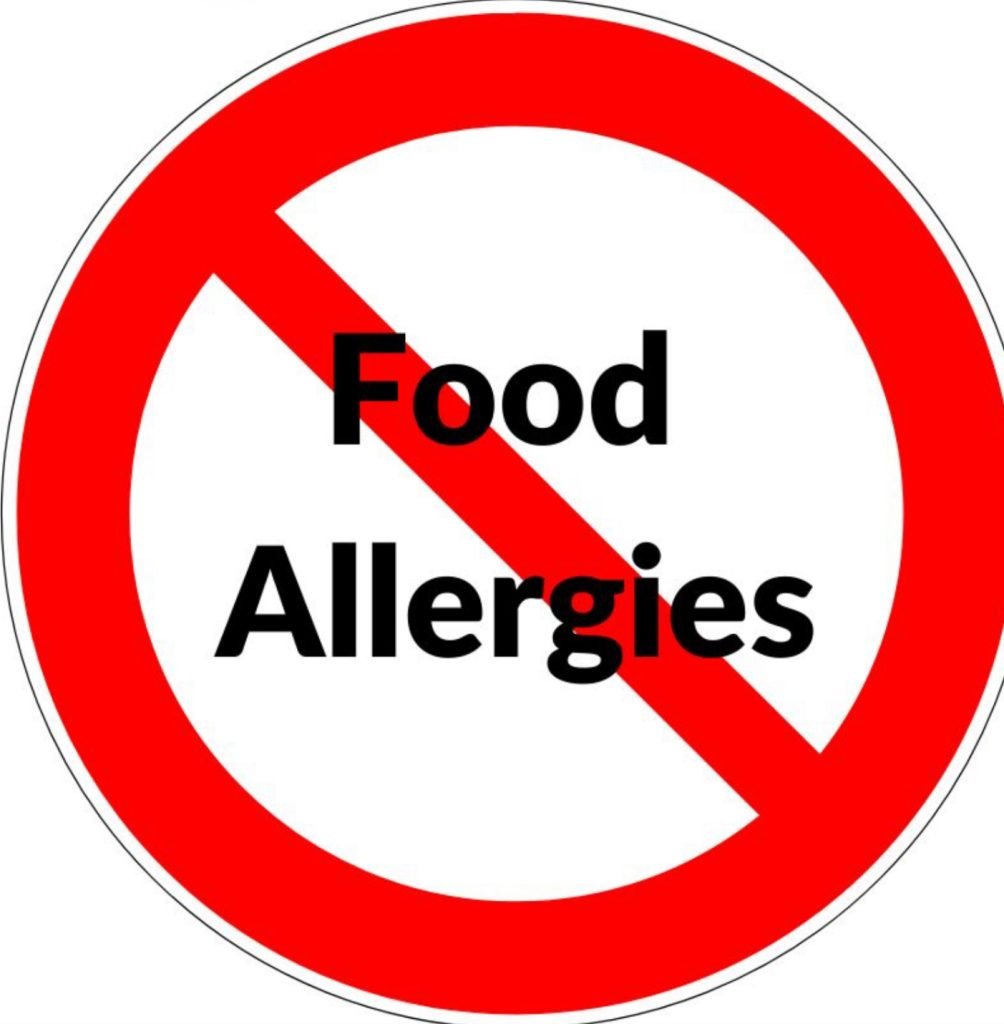Having precious little experience in culinary matters aside from the eating aspect, I must admit I was intimidated by the technical terminology related to the new responsibilities of Rebecca Strickland, Corinthia’s new Regional Food Safety Manager. Therefore, I thought it would be beneficial to invite Rebecca to provide a gentle introduction to these terms and enhance both my understanding and that of the readers on the topic.

Rebecca Strickland
Rebecca will be based in Malta, with a primary focus on overseeing food safety across all CHL Malta operations,
Given Rebecca’s clear enthusiasm for the position, I naturally asked what excited her most about it. “It’s knowing that every implemented process impacts directly on protecting guests’ health and the reputation of the business. Working with the kitchen brigade and other teams, helps to build practical solutions and empowers staff to take ownership of their own food safety management system (FSMS). There is a tremendous culture shift when everyone understands the ‘why’ behind safety practices. This is why training is so critical in the job.
Ultimately—it’s a shared commitment.”
In announcing Rebecca’s new position, Roderick Micallef, Chief Operating Officer of Corinthia Hotels, mentioned that she will assist culinary teams in multiple areas. I certainly needed her assistance on some terminology. There was specific mention of HACCP standards. What do these entail?
“The Company possesses a strong framework of policies and procedures focused on Food Safety Management. Each hotel has its own HACCP manual. HACCP (Hazard Analysis Critical Control Point) involves identifying the hazards in the food industry or in the workplace, analysing them to see whether these hazards are critical, such as the cooking process or those that can be controlled points, for example temperature documentation for fridges and freezers or monitoring goods on receipt. HACCP focuses on identifying and controlling potential hazards before they cause food-borne illness. It is a local and EU regulatory requirement.”

As part of the strategic plan, Rebecca will lead the development and implementation of CHL’s unified HACCP Standard Operating Procedures. I asked Rebecca to elaborate on her experience with HACCP standards and how she planned to integrate these practices across all regional operations.
“For CHL, the approach to a unified HACCP framework would start with a gap analysis across all regional operations to see where we stand. There is a good team on board, who are reviewing and updating all the policies and procedures that are relevant to food safety to ensure every site is aligned to the same core practices—while allowing flexibility for local menus, suppliers, and regulations. I am thrilled to be part of this team. Other areas to focus on are clear documentation, tailored training to make sure teams understand both the process and the purpose, and robust monitoring systems to keep performance on track.
“The main goal is to integrate HACCP into daily operations so it’s not just a compliance exercise, but a culture that ensures food safety and consistency and strengthens CHL’s brand reputation across every region. With the assistance and guidance of Sarah Mayne, Head of Safety and Security Operations, Miguel Teixeira, Corporate Executive Chef Operations, and the HACCP coordinators both locally and abroad, we are steadily progressing towards that goal.”

Rebecca’s duties include support on allergen controls. Could she expand on this?
“Food allergies are increasing worldwide. In fact, the Food Safety Standards highlight the following key facts:
- Over 17 million Europeans have a food allergy, and hospital admissions for severe allergic reactions in children have increased sevenfold over the past decade. Food allergies are the most common chronic disease in Europe.
- More than 150 million Europeans suffer from allergies, and it is predicted that by 2025, half of the EU population will be affected.
“This is a challenge we must manage. Effective allergen management requires training across all levels and departments, not just in the kitchen. F&B teams, housekeeping staff, kitchen porters, and any staff who directly or indirectly handle food must be trained. Front office and reception staff should also know how to respond to guests with food allergies. Food allergies can be life-threatening, and rapid recognition of symptoms allows for prompt action to save lives.
“Allergen management procedures are integral to the Food Safety Management System. One of the most significant challenges in their implementation is language barriers. For many team members, English may not be the primary language, which can lead to misunderstandings about the seriousness of food allergies. It is crucial to provide clear communication and training that cater to diverse language needs to ensure that allergen control measures are consistently adhered to.”
I noted that Rebecca Strickland’s duties include support on kitchen practices. What best practices could she recommend for the culinary teams to maintain compliance with food safety regulations?
Rebecca was quite emphatic and emphasised almost every word. “Food safety is our responsibility at every stage of the process, from farm to fork. Each step must be managed carefully to ensure the safety and quality of the food served.
“There must be a Supplier Control and Approval. Supplier selection is not just securing the best price—it’s about ensuring quality, safety, and compliance. All suppliers must be approved and registered with the relevant local authorities and must operate with a flexible HACCP system in place.
“Another essential rule is: No Shortcuts. Cutting corners in food safety can have serious consequences. Processes and procedures exist for a reason—food-borne illnesses can be severe and, in some cases, fatal.

“Training and awareness are essential.Training for chefs and kitchen teams includes understanding food-borne pathogenic bacteria, their risks, and the potential severity of their impact. This knowledge is essential for maintaining high safety standards and preventing incidents.”
Rebecca is also expected to lead internal audits and support external audits to ensure full regulatory compliance. What would this involve? Given her responsibility for leading internal audits, what key areas would she focus on to ensure compliance and improve processes?
“Part of the role requires a thorough understanding of Food Safety Regulations—both local and EU law—in order to implement full compliance. This includes staying updated on legislative changes, applying the relevant standards across operations, and ensuring that all procedures, documentation, and training align with regulatory requirements. Leading internal audits and supporting external audits involves systematically reviewing our operations, documentation, and practices to ensure full compliance with regulatory requirements and company standards.
“The key areas of focus include:
- Documentation & Records i.e. verifying that all Food Safety Management System (FSMS) documents (HACCP plans, cleaning schedules, training records, temperature logs, supplier approvals) are complete, up-to-date, and correctly maintained. It is also essential to ensure that corrective actions are documented and closed out in a timely manner.
- Operational Compliance, i.e. observing food handling, storage, and preparation processes to ensure alignment with HACCP and hygiene requirements. It also includes checking allergen controls, cross-contamination prevention, and personal hygiene practices.
- Training & Competence i.e. collaboration with the HR department to ensure all staff are trained accordingly.
4. Supplier Approval & Traceability, i.e. reviewing supplier lists to confirm approval status and compliance with legal and internal requirements.
5. Corrective & Preventive Action i.e. identifying non-conformities and ensuring address of root causes; implementing preventive measures to avoid recurrence; verification and validation of the system to ensure all processes that are implemented work; engaging with an accredited third-party laboratory for food and water samples for microbiological analysis; and medical screening.Through these audits we can maintain a culture of food safety, ensure regulatory compliance, and continuously improve operational standards”
Rebecca is also responsible for managing regional incident responses related to food safety concerns. What would this involve? What steps would be involved to mitigate risks?
“Incidents can range from alleged food poisoning complaints to foreign objects found in food (for example, a snail in a salad), to supplier-related issues such as incorrect or damaged packaging. Handling alleged food poisoning complaints is a critical part of our food safety system. A clear procedure is in place, and all departments are aware of their specific responsibilities to ensure the process is followed correctly.
“Training and Preparedness are essential. Ongoing, on-the-job training is provided to all relevant staff to ensure consistency and compliance in managing complaints. Food safety training is essential, not only to understand procedures but also to recognise the reasons behind them. When every team member carries out their role and responsibilities correctly, incidents can be managed effectively, and progress can be monitored.
“Naturally, Preventive Measures are imperative. For ongoing events, samples of high-risk foods are kept frozen. These samples are retained so that, in the event of a complaint, they can be tested to support the investigation process.”
Looking ahead, what long-term initiatives are crucial for maintaining Corinthia’s reputation for high food safety standards?
“In my view, the top five are the following:
- Continuous Training and Education to reflect the latest regulations, scientific findings, and best practices. This ensures our teams to remain knowledgeable and vigilant.
- Technology Integration. By implementing digital tools for monitoring critical control points, temperature logging, and supplier management can enhance accuracy, traceability, and real-time response to potential issues.
- Investing in employee development through continuous training and development.
- Investing in Equipment and Infrastructure. Upgrading and maintaining modern equipment and food-safe infrastructure improves hygiene, reduces contamination risks, and supports efficient operations. Proper facilities enable staff to follow best practices and meet regulatory standards consistently.
- Planning New Kitchens or Renovations. When designing new kitchens or renovating existing ones, we must consider areas that require strict segregation for food allergy management.”
Rebecca has been working for the Corinthia Group for ten years. What experiences have most shaped her understanding and commitment to food safety?
She changed into a reflection mood. “Over the years, I have understood it is essential to develop a strong rapport with colleagues in order to effectively manage teams and their commitment to food safety. Building trust and understanding individual strengths help create a motivated workforce dedicated to maintaining high standards. Working closely with chefs to observe how they operate their kitchens is the best starting point before introducing documentation or issuing directives. Understanding their workflow, challenges, and priorities ensures food safety procedures are practical and well-received.”

Super family!
Certainly Rebecca is managing a work-life balance. She is married to a wonderful husband, Gerald, and has three children: George, Tomas and Emma. Given the demands of this role and focus on operations in Malta, how did she plan to maintain such healthy work-life balance?

Rough and tough. Gerald with sons George and Tomas
“That is always the most challenging part. Managing the household with Gerald is a full-time job in itself! Gerald is so hands-on that it would be very difficult for me to do what I do without his support. My kids are at a stage where they’re beginning to understand their own goals and needs in life. They’re very active socially and in sports; rugby is always a major topic of our lively dinner conversations.

With daughter, Emma
“It’s about prioritising what truly matters in life and staying committed to those goals. Everything else takes a back seat. I stay active to maintain my mental focus, and spending time outdoors with Gerald and Charlie our dog, is truly the best medicine.”
I must say, I enjoyed my talk with Rebecca tremendously. Her knowledgable, clear and confident approach coupled with her ability to simplify what could be a complicated topic, engaged me in a field which I had hitherto feared to tread.
.


